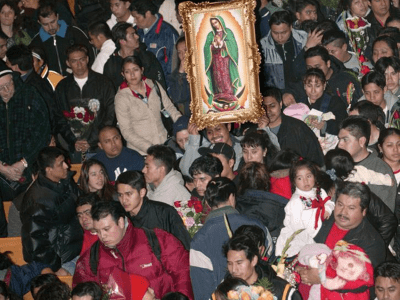
Catholic Schools Week in the United States begins this year on Sunday, January 25, and ends January 31. The theme of this week of celebration and reflection is “Catholic Schools: United in Faith and Community.” Catholic schools have an irreplaceable role in the Church’s evangelizing mission. Building on the central goal of Catholic schools to form saints, Catholic schools teach and embrace the whole person, body, mind and spirit. The fact that all members of a Catholic school community share the Christian vision of faith that Christ is the foundation of Catholic education is what unites the school as a faith-filled community.
It would be impossible to overestimate the influence that Catholic schools have had on the Catholic faith, and indeed on all of civic society, in the U.S. Catholic schools have produced generations of leaders and nurtured the faith in incalculable ways.
When and where was the first U.S. Catholic school established? According to the National Catholic Education Association’s website, it’s hard to pinpoint, but clear that U.S. Catholic education has deep roots. The Franciscans opened a school in what is now St. Augustine, Florida, in 1606. Not too much later, and farther north, Jesuits were educating Indian children, including our new American saint, Kateri Tekakwitha.
Women like Saint Elizabeth Ann Seton, who helped to found the Catholic school system in America, and Saint Katherine Drexel, who labored for the education of Black Americans, were among the thousands of religious women who gave their lives to “raise the standard” in Catholic education.
The influx of immigrants in the late 19th and early 20th centuries, coupled with a decidedly anti-Catholic bias present in some public schools at the time, propelled the enormous growth of Catholic schools in America’s great cities and small towns. Entire generations of U.S. Catholics are graduates of the Church’s school system.
Times have changed. Many dioceses face consolidations and closures of schools; and the network of religious women who made Catholic schools so affordable has been largely replaced by a dedicated pool of lay men and women.
Yet, Catholic education continues to flourish and continually seeks new ways to enhance our Catholic faith through education. Today, 7,000 Catholic schools continue to serve the Church and nation, and produce America’s leaders and faithful Catholics. As Catholic stewards, we are grateful for the gift of Catholic schools to our Church and nation, and we pledge our continued support and prayer.



